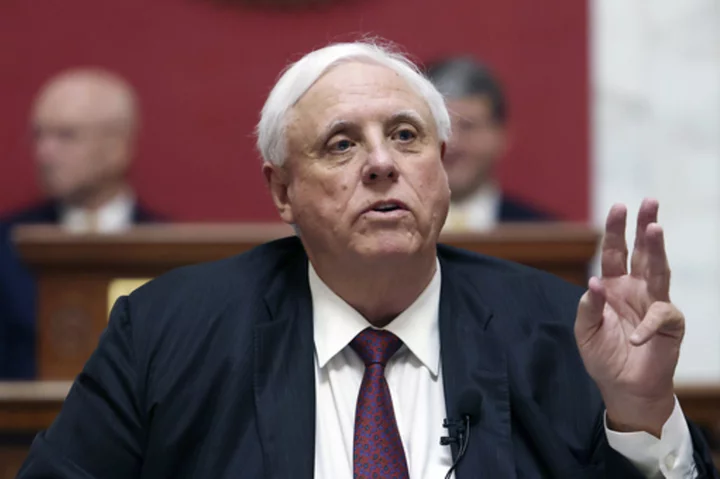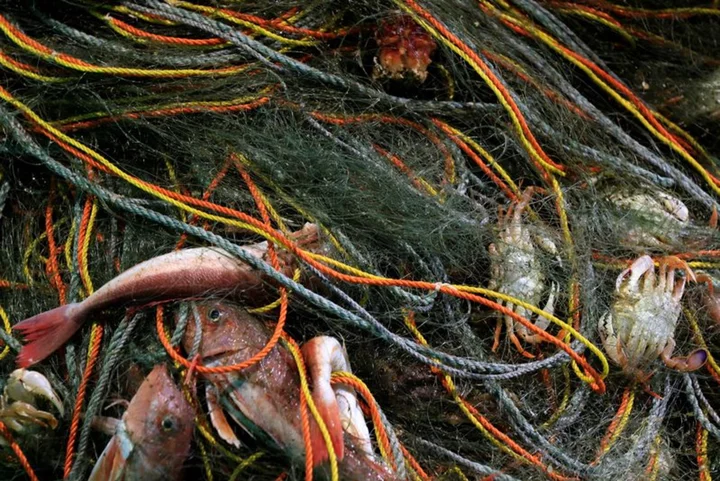DOVER, Del. (AP) — A federal judge in Delaware has ordered West Virginia Gov. Jim Justice to provide information about his finances to attorneys for a Pennsylvania coal exporter who have sued to collect $1.9 million owed by Justice and one of his coal companies.
Justice, who is running for the Republican nomination for U.S. Senate in West Virginia, has refused to respond to information requests from Xcoal Energy & Resources, which is trying to collect the balance of a judgment of more than $10 million against Justice and Southern Coal Corp.
Attorneys for Justice have argued that Xcoal is seeking sensitive financial information that media organizations and political opponents could try to obtain and use against him as he tries to unseat Democratic Sen. Joe Manchin — a potential matchup that could determine control of the U.S. Senate. They also contend that an existing protective order entered in the lawsuit nearly five years ago is insufficient in the context of "one of the most politically charged elections in our nation’s history.”
In an order issued Tuesday, Judge Leonard Stark rejected those arguments, saying Justice waived his opportunity to object to Xcoal’s information requests or to seek additional confidentiality measures by not responding in a timely manner.
“More importantly, Governor Justice’s objections lack merit,” Stark said. “He identifies no authority for his contention that he should not have to provide discovery … because he is a declared candidate for political office.”
Stark also said Justice has provided no evidence to suggest that the existing order protecting confidential information in the lawsuit is insufficient, or that electronic records he provides could be hacked.
“Finally, as Xcoal correctly points out, Governor Justice ‘ignores the most obvious solution to his purported concerns - instead of continuing to flout his obligations to Xcoal, Governor Justice could simply pay the remaining judgment amount of $1,917,222.32, plus post-judgment interest,’” Stark noted.
The judge gave Justice until July 5 to answer Xcoal’s information requests and provide all responsive documents.
Attorneys for Xcoal, meanwhile, argued that their requests for Justice’s financial information are all the more critical given media reports about the financial problems that have beset him and his businesses in recent years.
“It is critical that Xcoal be afforded its rightful opportunity to immediately locate assets and recover the remaining amount due, as there is a substantial risk that such assets may be liquidated in the very near future,” they wrote in a court filing last week.
Justice’s companies have been frequently targeted in lawsuits over unpaid bills. In Delaware, Xcoal sued the coal magnate and two of his companies, Roanoke, Virginia-based Bluestone Energy Sales Corp. and Southern Coal Corp., in 2018, alleging that they failed to fulfill an agreement to deliver hundreds of thousands of tons of coal for shipment overseas. Xcoal and Bluestone entered into an agreement in 2017 under which Bluestone would supply Xcoal with 720,000 net tons of metallurgical grade coal from a mine in Bishop, West Virginia. Southern Coal and Justice guaranteed the payment and performance obligations of Bluestone, a pass-through entity with no assets.
In 2021, Stark ruled that Xcoal was entitled to more than $6.8 million in damages from Justice and Southern Coal. The amount was later increased to more than $10 million to account for interest and attorneys’ fees and costs.
Xcoal later collected $8.1 million from a surety bond obtained by the defendants while they unsuccessfully appealed Stark’s ruling, but the balance remains unpaid.









